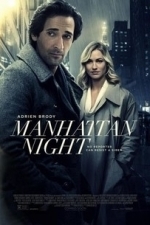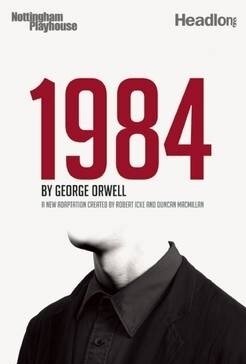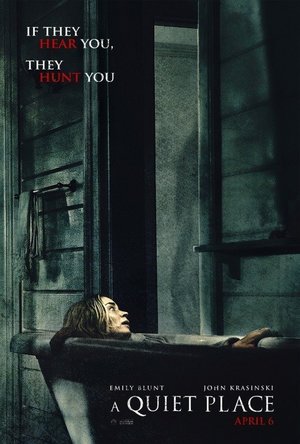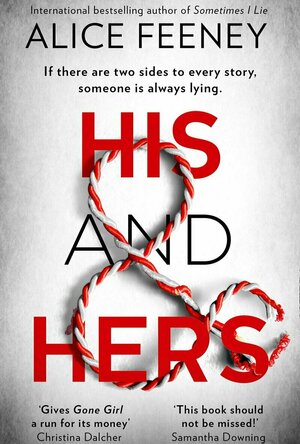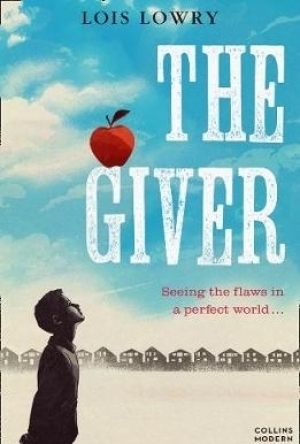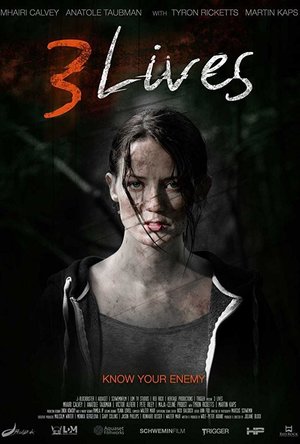Search
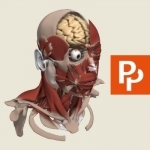
Head: 3D Real-time Human Anatomy
Medical and Education
App
Primal's 3D Real-time Human Anatomy app for the Head is the ultimate 3D interactive anatomy viewer...
Darren (1599 KP) rated Manhattan Night (Manhattan Nocturne) (2016) in Movies
Nov 7, 2019
Characters – Porter Wren is a well-respected journalist in New York, he has a comfortable job in his paper because of his reputation for telling people’s stories. His latest case however will get him looking into the murder mystery that will push himself to the limits when he gets involved with the victim’s wife. He narrates a lot of this which is the films way of trying to have a dig a modern society. Caroline is the wife whose husband has been killed, she seduces Porter, which plays her out to be a siren, only she soon feels like a victim with this character get caught in the middle we never know which side she is meant to be, one that gets what she wants or just a victims. Simon is the husband that has been murdered meaning we only see him in flashback of how the two were married. Lisa is the wife of Porter, she is doctor and from how Porter tells the story they don’t get along as they once did.
Performances – Adrien Brody does well in the leading role in the film even if he doesn’t make his character feel much different than any others from the similar genre. Yvonne Strahovski fits the seductive side to her character, though without being the strongest in the serious side of the story. Campbell Scott and Jennifer Beals just don’t get enough time to show their skills off in this film.
Story – The story here follows an investigation into an unsolved murder which brings the investigative reporter into a series of cover ups and conspiracy in true noir style. Using the noir style is clear here, the execution of the noir style doesn’t quite come off though because the siren doesn’t feel like a siren and by the end you will be left wondering just why the investigation wasn’t solved by the police in the first place, let alone why the reporter is even asked to investigate it. Nothing really comes out of solving the case which is the biggest disappointment from everything we are getting invested in.
Crime/Mystery – The crime side of this mystery does involve a murder that hasn’t been solved, it does have other crime elements involved too which just confuse the simply plot.
Settings – The film is set in New York and uses a secret house to show a place of peace in this busy city and how people can meet and connect through life.
Scene of the Movie – The truth.
That Moment That Annoyed Me – The case felt pointless to solve.
Final Thoughts – This is a noir styled crime mystery that gives us a case that almost doesn’t need to be solved in the end.
Overall: Mystery that didn’t need solving.
Performances – Adrien Brody does well in the leading role in the film even if he doesn’t make his character feel much different than any others from the similar genre. Yvonne Strahovski fits the seductive side to her character, though without being the strongest in the serious side of the story. Campbell Scott and Jennifer Beals just don’t get enough time to show their skills off in this film.
Story – The story here follows an investigation into an unsolved murder which brings the investigative reporter into a series of cover ups and conspiracy in true noir style. Using the noir style is clear here, the execution of the noir style doesn’t quite come off though because the siren doesn’t feel like a siren and by the end you will be left wondering just why the investigation wasn’t solved by the police in the first place, let alone why the reporter is even asked to investigate it. Nothing really comes out of solving the case which is the biggest disappointment from everything we are getting invested in.
Crime/Mystery – The crime side of this mystery does involve a murder that hasn’t been solved, it does have other crime elements involved too which just confuse the simply plot.
Settings – The film is set in New York and uses a secret house to show a place of peace in this busy city and how people can meet and connect through life.
Scene of the Movie – The truth.
That Moment That Annoyed Me – The case felt pointless to solve.
Final Thoughts – This is a noir styled crime mystery that gives us a case that almost doesn’t need to be solved in the end.
Overall: Mystery that didn’t need solving.
Becs (244 KP) rated 1984 Nineteen Eighty-Four in Books
Oct 2, 2019
1984 by George Orwell, one of my favorite literary classic novels to this date! This was a monster to get through but once I finished, I was able to take the novel as a whole and learn from it. And man, what a loaded punch it throws at you. George Orwell is a favorite of mine and his writing style is just exactly what I expect from an author from his era.
1984 is about a government that controls everything a citizen of Oceania does, says, etc. If you rebel, you get kidnapped, tortured and then broken down to the point where they are able to rebuild you into the ideal citizen. That’s pretty much exactly what happens in this 328-page novel. But trust me when I say, this is worth a read through!
Genre: Sci-Fi, Dystopian, Literary Classic
Reading Level: High School +
Interests: Dystopian worlds, politics, science fiction, totalitarian systems.
Difficulty Reading: Like putting butter on a soft piece of bread. Not kidding, 1984 was difficult to read but the meaning behind it is what counts.
Promise: Dystopian, Sci-Fi world with a totalitarian system that runs your life until you are no longer a rebellious individual and instead under their complete control. A bit like being a slave.
Favorite Quotes: “Perhaps one did not want to be loved so much as to be understood.”
“Who controls the past controls the future. Who controls the present controls the past.”
“If you want a picture of the future, imagine a boot stamping on a human face—for ever.”
What Will You Gain: Knowledge on what the world could turn into when the government decides to rule over all a certain way. Where everything you do is controlled and if you do anything differently or that goes against what the government says, you end up dead.
Aesthetics: The entirety of the novel. The cover. How Orwell pretty much has the real world mixed in with a fantasy world. I mean, you just have to read it to know.
“The best books… are those that tell you what you know already.”
1984 is about a government that controls everything a citizen of Oceania does, says, etc. If you rebel, you get kidnapped, tortured and then broken down to the point where they are able to rebuild you into the ideal citizen. That’s pretty much exactly what happens in this 328-page novel. But trust me when I say, this is worth a read through!
Genre: Sci-Fi, Dystopian, Literary Classic
Reading Level: High School +
Interests: Dystopian worlds, politics, science fiction, totalitarian systems.
Difficulty Reading: Like putting butter on a soft piece of bread. Not kidding, 1984 was difficult to read but the meaning behind it is what counts.
Promise: Dystopian, Sci-Fi world with a totalitarian system that runs your life until you are no longer a rebellious individual and instead under their complete control. A bit like being a slave.
Favorite Quotes: “Perhaps one did not want to be loved so much as to be understood.”
“Who controls the past controls the future. Who controls the present controls the past.”
“If you want a picture of the future, imagine a boot stamping on a human face—for ever.”
What Will You Gain: Knowledge on what the world could turn into when the government decides to rule over all a certain way. Where everything you do is controlled and if you do anything differently or that goes against what the government says, you end up dead.
Aesthetics: The entirety of the novel. The cover. How Orwell pretty much has the real world mixed in with a fantasy world. I mean, you just have to read it to know.
“The best books… are those that tell you what you know already.”
Sarah (7800 KP) rated A Quiet Place (2018) in Movies
Apr 26, 2018
Tense and interesting
I'm going to be frankly honest now and say this film is a little overrated. One of the best horrors I've seen in a long time, but still a tad overrated.
The premise is a very interesting and truly terrifying take on the usual end of the world scenario. And this for me is the best and scariest thing about the film, never before has silence been so scary. John Krasinski does a great job both acting, directing and writing and i think it's a shame he doesn't do a lot more acting wise. The creatures themselves are horrific and strange, but not too weird looking to be laughable (like Life). They potentially look a little too CGI but it's acceptable for the most part. The film in general starts off a little slow paced but then soon picks up speed, to the point where when it finished, I couldn't believe it had been on for 90 minutes. I'm also grateful that they don't try and spend much time over explaining this apocalypse, instead relying on a few choice newspaper cutouts.
I do have a few issues with this film though. It relies a little too heavily on jump scares, which although they're very effective in such a quiet film, for me they're a bit much. Also, some of the film beggars belief - a woman in labour making barely any noise? Hmm not too sure about that. And my final criticism is the fact that the opening scene is prominently featured in the trailer, meaning any shock or fear we would have had at this is long gone.
Overall a very good horror film, and one I'd love to see in silence in my own home.
The premise is a very interesting and truly terrifying take on the usual end of the world scenario. And this for me is the best and scariest thing about the film, never before has silence been so scary. John Krasinski does a great job both acting, directing and writing and i think it's a shame he doesn't do a lot more acting wise. The creatures themselves are horrific and strange, but not too weird looking to be laughable (like Life). They potentially look a little too CGI but it's acceptable for the most part. The film in general starts off a little slow paced but then soon picks up speed, to the point where when it finished, I couldn't believe it had been on for 90 minutes. I'm also grateful that they don't try and spend much time over explaining this apocalypse, instead relying on a few choice newspaper cutouts.
I do have a few issues with this film though. It relies a little too heavily on jump scares, which although they're very effective in such a quiet film, for me they're a bit much. Also, some of the film beggars belief - a woman in labour making barely any noise? Hmm not too sure about that. And my final criticism is the fact that the opening scene is prominently featured in the trailer, meaning any shock or fear we would have had at this is long gone.
Overall a very good horror film, and one I'd love to see in silence in my own home.
Hazel (1853 KP) rated Saint Death in Books
Dec 17, 2018
<i>This ARC was provided by the publisher via NetGalley in exchange for an honest review </i>
What must life be like living in a poor neighbourhood? Every night your sleep is disturbed by gunshots, the people you know slowly disappear each time a gang raids the town, you live in fear for your own life. This is the concept international award-winning author Marcus Sedgwick explores in his latest Young Adult novel. Set in Anapra, one of the poorest communities in Mexico, Sedgwick delivers a story of poverty, gang crime and greed.
A young man – presumably still in his teens – named Arturo is living in a falling down shack, surviving on the small amount he earns at the local garage. Having kept to himself for the past year in order to remain safe, he experiences mixed emotions when his long lost friend turns up on his door stop – if you can call it that – and asks him to win $1000 by gambling at cards to appease a brutal gang leader.
What follows is an intense game against dangerous criminals with only prayers to Santa Muerte – Saint Death – to help Arturo get by. However, in the same way that the gang leaders are obsessed with wealth, Arturo begins to be overcome with greed, putting both himself and his friend in mortal danger.
<i>Saint Death</i> is not a book to be <i>liked</i>, after all, who would be fond of death, pain and violence? Instead it is a story that introduces an alternative culture to the readers – presuming that most will be from the more typical western world. Sedgwick throws us right into the slums of Mexico where religion, superstition, law and safety have an entirely different meaning. We learn that life in these areas is mostly a war between power and poverty, with the wealthy naturally championing over the rest.
Unfortunately <i>Saint Death</i> is a difficult book to read. For a start, it is a little bit boring. Whilst the events may be realistic there is no thrill or enjoyment garnered from reading about them. Understandably, Sedgwick is trying to bring a sense of culture into his work, however there is barely anything that a Young Adult reader can relate to. We are never told Arturo’s age and only assume he his in his teens, however he acts like a much older adult. It is difficult to imagine and comprehend the poverty, gangs and violence when we have not been witness to it ourselves. Whilst attempting to shock, Sedgwick lacks on description making it a challenge to picture the scene in our heads.
Prior to this book, I had only read Sedgwick’s <i>My Sword Hand is Singing</i> (2006), therefore I was unsure what to expect with his latest novel. It was my understanding that he tends to write horror or paranormal novels, whereas <i>Saint Death</i> was a complete change of genre. Of course authors experiment with their writing style all the time; some are successful, others less so. In this instance I personally think Sedgwick fell short of his goal, trying too hard to copy other writers that had influenced him to make this conversion. Whether Sedgwick decides to continue along this theme or revert back to what he has already been successful with remains to be seen, but I am hoping for the latter.
What must life be like living in a poor neighbourhood? Every night your sleep is disturbed by gunshots, the people you know slowly disappear each time a gang raids the town, you live in fear for your own life. This is the concept international award-winning author Marcus Sedgwick explores in his latest Young Adult novel. Set in Anapra, one of the poorest communities in Mexico, Sedgwick delivers a story of poverty, gang crime and greed.
A young man – presumably still in his teens – named Arturo is living in a falling down shack, surviving on the small amount he earns at the local garage. Having kept to himself for the past year in order to remain safe, he experiences mixed emotions when his long lost friend turns up on his door stop – if you can call it that – and asks him to win $1000 by gambling at cards to appease a brutal gang leader.
What follows is an intense game against dangerous criminals with only prayers to Santa Muerte – Saint Death – to help Arturo get by. However, in the same way that the gang leaders are obsessed with wealth, Arturo begins to be overcome with greed, putting both himself and his friend in mortal danger.
<i>Saint Death</i> is not a book to be <i>liked</i>, after all, who would be fond of death, pain and violence? Instead it is a story that introduces an alternative culture to the readers – presuming that most will be from the more typical western world. Sedgwick throws us right into the slums of Mexico where religion, superstition, law and safety have an entirely different meaning. We learn that life in these areas is mostly a war between power and poverty, with the wealthy naturally championing over the rest.
Unfortunately <i>Saint Death</i> is a difficult book to read. For a start, it is a little bit boring. Whilst the events may be realistic there is no thrill or enjoyment garnered from reading about them. Understandably, Sedgwick is trying to bring a sense of culture into his work, however there is barely anything that a Young Adult reader can relate to. We are never told Arturo’s age and only assume he his in his teens, however he acts like a much older adult. It is difficult to imagine and comprehend the poverty, gangs and violence when we have not been witness to it ourselves. Whilst attempting to shock, Sedgwick lacks on description making it a challenge to picture the scene in our heads.
Prior to this book, I had only read Sedgwick’s <i>My Sword Hand is Singing</i> (2006), therefore I was unsure what to expect with his latest novel. It was my understanding that he tends to write horror or paranormal novels, whereas <i>Saint Death</i> was a complete change of genre. Of course authors experiment with their writing style all the time; some are successful, others less so. In this instance I personally think Sedgwick fell short of his goal, trying too hard to copy other writers that had influenced him to make this conversion. Whether Sedgwick decides to continue along this theme or revert back to what he has already been successful with remains to be seen, but I am hoping for the latter.
Ivana A. | Diary of Difference (1171 KP) rated His and Hers in Books
Aug 3, 2020
<a href="https://amzn.to/2Wi7amb">Wishlist</a>; | <a
<a href="https://diaryofdifference.com/">Blog</a>; | <a href="https://www.facebook.com/diaryofdifference/">Facebook</a>; | <a href="https://twitter.com/DiaryDifference">Twitter</a>; | <a href="https://www.instagram.com/diaryofdifference/">Instagram</a>; | <a href="https://www.pinterest.co.uk/diaryofdifference/pins/">Pinterest</a>;
<img src="https://diaryofdifference.com/wp-content/uploads/2020/05/Book-Review-Banner-55.png"/>;
With His and Hers by Alice Feeney, prepare to jump on a ride where one murder will open up the gates of the past, and expose a lot of people in a very brutal way.
I am extremely happy and proud I can be part of the blog tour for this book!
<b><i>Synopsis:</i></b>
When a woman is murdered in Blackdown village, Anna Andrews needs to go there to cover the story. However, her hometown brings back a lot of unwanted memories.
Her ex-husband, DCI Jack Harper is investigating the murder and is very suspicious of Anna's involvement. That is, until he becomes a suspect himself.
<b><i>My Thoughts: </i></b>
I have to admit, at the beginning I though this will be a domestic thriller, and I am not too keen on them. I enjoy them, but I prefer psychological thrillers more. It turned out that His and Hers is not only a psychological thriller, but also a very well written one. I have only read one book from Alice Feeney before,<a href="https://www.goodreads.com/review/show/2798981407?book_show_action=false&from_review_page=1">I Know Who You Are</a>, and I also enjoyed it, so I was expecting to enjoy this one as well.
<b><i>The chapters are split into three points of view.</i></b>
The first one is Her - Anna's point of view. The second one is Him - Jack's story. The third one is the point of view of the killer, who has their own thoughts and explanations. And the beautiful thing about the third point of view is that we don't know who it might be until the very end of the book. That point of view is so well written, that I kept guessing who it might be, and kept changing my mind. At the end, the answer was so surprising and satisfying in the end. And once I knew who the killer is, I went back and read those pages again, and they had a completely another meaning for me. Kudos to Alice for making this possible, as I know not everyone can manage to do this!
<b><i>"And I pay attention to the little things, because they are often the biggest clues to who a person really is. People rarely see themselves the way others do; we all carry broken mirrors."
Dementia</i></b>
The book also briefly focuses on Dementia, and we get to experience the moment Anna realises her mother is ill. For me, this had a special meaning, having experience working with people suffering from dementia, and the writing of the symptoms was very accurate. The reaction of Anna was quite accurate as well, in terms of how hard it was to notice, but also how much harder is to actually accept this fact.
<b><i>"Mum doesn't always remember that I'm thirty-six and live in London. She frequently forgets that I have a job, and that I used to have a husband and a child of my own. She didn't even seem to know that it was my birthday. There was no card this year, or last, but it's not her fault. Time is something my mother has forgotten how to tell. It moves differently for her now, often backwards instead of forwards. Dementia stole time from my mother, and stole my mother from me."</i></b>
If you get to read His and Hers, prepare for many twists, many mysteries, a lot of drama and betrayals. The ending was the most satisfying part for me, but I enjoyed this book all the way through and struggled to put it down. I recommend it to everyone that is in love with mystery thrillers, especially the ones that focus on the psychological aspect.
<b><i>"Youth fools us into thinking there are infinite paths to choose from in life; maturity tricks us into thinking there is only one."</i></b>
Thank you to the HQ Team, for sending me an ARC copy of this book in exchange for an honest review!
<a href="https://diaryofdifference.com/">Blog</a>; | <a href="https://www.facebook.com/diaryofdifference/">Facebook</a>; | <a href="https://twitter.com/DiaryDifference">Twitter</a>; | <a href="https://www.instagram.com/diaryofdifference/">Instagram</a>; | <a href="https://www.pinterest.co.uk/diaryofdifference/pins/">Pinterest</a>;
<img src="https://diaryofdifference.com/wp-content/uploads/2020/05/Book-Review-Banner-55.png"/>;
With His and Hers by Alice Feeney, prepare to jump on a ride where one murder will open up the gates of the past, and expose a lot of people in a very brutal way.
I am extremely happy and proud I can be part of the blog tour for this book!
<b><i>Synopsis:</i></b>
When a woman is murdered in Blackdown village, Anna Andrews needs to go there to cover the story. However, her hometown brings back a lot of unwanted memories.
Her ex-husband, DCI Jack Harper is investigating the murder and is very suspicious of Anna's involvement. That is, until he becomes a suspect himself.
<b><i>My Thoughts: </i></b>
I have to admit, at the beginning I though this will be a domestic thriller, and I am not too keen on them. I enjoy them, but I prefer psychological thrillers more. It turned out that His and Hers is not only a psychological thriller, but also a very well written one. I have only read one book from Alice Feeney before,<a href="https://www.goodreads.com/review/show/2798981407?book_show_action=false&from_review_page=1">I Know Who You Are</a>, and I also enjoyed it, so I was expecting to enjoy this one as well.
<b><i>The chapters are split into three points of view.</i></b>
The first one is Her - Anna's point of view. The second one is Him - Jack's story. The third one is the point of view of the killer, who has their own thoughts and explanations. And the beautiful thing about the third point of view is that we don't know who it might be until the very end of the book. That point of view is so well written, that I kept guessing who it might be, and kept changing my mind. At the end, the answer was so surprising and satisfying in the end. And once I knew who the killer is, I went back and read those pages again, and they had a completely another meaning for me. Kudos to Alice for making this possible, as I know not everyone can manage to do this!
<b><i>"And I pay attention to the little things, because they are often the biggest clues to who a person really is. People rarely see themselves the way others do; we all carry broken mirrors."
Dementia</i></b>
The book also briefly focuses on Dementia, and we get to experience the moment Anna realises her mother is ill. For me, this had a special meaning, having experience working with people suffering from dementia, and the writing of the symptoms was very accurate. The reaction of Anna was quite accurate as well, in terms of how hard it was to notice, but also how much harder is to actually accept this fact.
<b><i>"Mum doesn't always remember that I'm thirty-six and live in London. She frequently forgets that I have a job, and that I used to have a husband and a child of my own. She didn't even seem to know that it was my birthday. There was no card this year, or last, but it's not her fault. Time is something my mother has forgotten how to tell. It moves differently for her now, often backwards instead of forwards. Dementia stole time from my mother, and stole my mother from me."</i></b>
If you get to read His and Hers, prepare for many twists, many mysteries, a lot of drama and betrayals. The ending was the most satisfying part for me, but I enjoyed this book all the way through and struggled to put it down. I recommend it to everyone that is in love with mystery thrillers, especially the ones that focus on the psychological aspect.
<b><i>"Youth fools us into thinking there are infinite paths to choose from in life; maturity tricks us into thinking there is only one."</i></b>
Thank you to the HQ Team, for sending me an ARC copy of this book in exchange for an honest review!
An imperfect perfect future
October 2014 Book of the Month
I received this book for free through Goodreads First Reads.
It has been over twenty years since Lois Lowry’s controversial children’s story The Giver was published and it certainly deserves its status as an essential modern classic. Jonas has grown up in the perfect world of the Community whose survival relies on strict rules and rituals. Adults are assigned spouses and children (one boy and one girl) as they take up their role within the society. At the beginning of the book Jonas is approaching then end of his eleventh year and feeling apprehensive about the Ceremony of Twelve where he will be assigned a job for him to do for the rest of his adult life. Jonas gets selected as the Receiver of Memory – a very rare position – and begins to experience memories from humans who lived a long time ago. For Jonas this is exciting until he begins to see the flaws in his perfect world.
Dystopian literature has become popular over the past few years and it would not be surprising if it were The Giver that inspired these contemporary works. Lowry claims that she did not intend for The Giver to have a sinister feel about it; she was writing an adventure story and exploring the concept of the importance of memory, but it turned out to be something much more thought provoking. As the children’s novelist Margaret Mahy (The Haunting) pointed out, up until the publication of this novel in 1993 Lowry was best known for her funny stories about Anastasia Krupnik resulting in The Giver being even more shocking and unexpected.
The Giver highlights that attempting to produce perfection can often result in the loss of good things as well as the bad. The notion of the ideal world may seem like a wonderful proposal, but in order to achieve it humans would have to do away with free choice as in ironing out the inequalities and injustices of the present world would result in everything becoming the same for each individual.
This is a difficult concept to grasp, particularly for a child. Although intended as a children’s series, The Giver and its following installments are more suitable for young adults and older. The only issue with this is that the writing style was target at a younger audience meaning that the overall story is short and lacks depth. If it were to have been written for older readers then there would have been the scope for it to become a much lengthier novel.
There are a lot of mixed reviews surrounding this book although they have changed greatly since the original publication. To begin with The Giver was banned in some areas however the dystopian theme has become accepted in today’s society. What many people comment on now is the oversimplification of such strong ideas. Then again, as already mentioned, it needs to be emphasized that this book was aimed at children, thus the language reflects the reading skills of its target audience.
The Giver is a gem of a book that not only is enjoyable but also can educate the reader on the dangers of attempting a utopian society and why it is important to retain human memories – even the bad – in order that wisdom can exist. Those who have become fans of contemporary dystopian novels, for example Divergent by Veronica Roth or Delirium by Lauren Oliver, will be sure to love this series.
I received this book for free through Goodreads First Reads.
It has been over twenty years since Lois Lowry’s controversial children’s story The Giver was published and it certainly deserves its status as an essential modern classic. Jonas has grown up in the perfect world of the Community whose survival relies on strict rules and rituals. Adults are assigned spouses and children (one boy and one girl) as they take up their role within the society. At the beginning of the book Jonas is approaching then end of his eleventh year and feeling apprehensive about the Ceremony of Twelve where he will be assigned a job for him to do for the rest of his adult life. Jonas gets selected as the Receiver of Memory – a very rare position – and begins to experience memories from humans who lived a long time ago. For Jonas this is exciting until he begins to see the flaws in his perfect world.
Dystopian literature has become popular over the past few years and it would not be surprising if it were The Giver that inspired these contemporary works. Lowry claims that she did not intend for The Giver to have a sinister feel about it; she was writing an adventure story and exploring the concept of the importance of memory, but it turned out to be something much more thought provoking. As the children’s novelist Margaret Mahy (The Haunting) pointed out, up until the publication of this novel in 1993 Lowry was best known for her funny stories about Anastasia Krupnik resulting in The Giver being even more shocking and unexpected.
The Giver highlights that attempting to produce perfection can often result in the loss of good things as well as the bad. The notion of the ideal world may seem like a wonderful proposal, but in order to achieve it humans would have to do away with free choice as in ironing out the inequalities and injustices of the present world would result in everything becoming the same for each individual.
This is a difficult concept to grasp, particularly for a child. Although intended as a children’s series, The Giver and its following installments are more suitable for young adults and older. The only issue with this is that the writing style was target at a younger audience meaning that the overall story is short and lacks depth. If it were to have been written for older readers then there would have been the scope for it to become a much lengthier novel.
There are a lot of mixed reviews surrounding this book although they have changed greatly since the original publication. To begin with The Giver was banned in some areas however the dystopian theme has become accepted in today’s society. What many people comment on now is the oversimplification of such strong ideas. Then again, as already mentioned, it needs to be emphasized that this book was aimed at children, thus the language reflects the reading skills of its target audience.
The Giver is a gem of a book that not only is enjoyable but also can educate the reader on the dangers of attempting a utopian society and why it is important to retain human memories – even the bad – in order that wisdom can exist. Those who have become fans of contemporary dystopian novels, for example Divergent by Veronica Roth or Delirium by Lauren Oliver, will be sure to love this series.
Darren (1599 KP) rated 3 Lives (2019) in Movies
Jul 25, 2019
Story: 3 Lives starts when a therapist Emma (Calvey) gets kidnapped after years of being on the run, left trapped with Jamie (Kaps) and Ben (Ricketts) a man that went to prison for her first kidnapping, despite being considered the rescuer. The three escape, with three men Thoms (Taubman), Piggy (Alfieri) and Frotti (Riley) chasing them down.
With Emma, Jamie and Ben trying to figure out why they are kidnapped, Emma starts looking back on her previous experience, hoping to uncover more about why Ben acted the way she believes he did, as he seems to be the only one guiding them to safety.
Thoughts on 3 Lives
Characters – Emma is a therapist that has been helping victims of violent crimes, she knows what it is like to have been a victim after previously being kidnapped and raped, she finds herself getting kidnapped once again and left wondering if the right person took the blame for the crime against her. Jamie is a man that has been kidnapped too, he believes that Ben was innocent and doesn’t want Emma to trust him while they plan to escape, he doesn’t seem to have any experience of the woods though. Ben is the man who claimed to be the rescuer of Emma before, only to take the blame for the crime, he sees this as a chance to redeem himself for what she believes he might have done, he knows how the survive in the conditions and is always thinking about survival. Thoms is leading the men hunting them down, with his training to make him a brilliant tracker through the woods.
Performances – Mhairi Calvey in the leading role is strong though the film, she does make us believe that her character has been a victim, while showing the strength to face the man that did this too her. Tyron Ricketts give us a strong supporting performance as a man who remains stronger than the broken version of himself could be. Martin Kaps brings us the annoying figure trapped in the woods, he does the I’m the nice guy routine with ease, while also bring us the ‘you’re an idiot’ side to his character.
Story – The story here follows a woman that finds herself kidnapped again, going face to face with the man who went to prison for raping her years ago, now they are joined by another man from their past as they look to escape hunters in the woods looking to eliminate them. The story does tackle the serious affects of sexual assault, how the victim’s life will never be the same, we see how they can confront the person and still remain unsure of the real events of what happened because of the trauma involved such an act. The survival aspect of the story doesn’t reach the levels of peril it could do, while the constant back and forth that goes on trying to point figures between Emma, Ben and Jamie gets confusing because most of it is wondering why they have been selected. The story is saved by the final act which will put the pieces together and make sense of everything we have seen beforehand.
Thriller – The film never reaches the full level of the intensity that it could, with the being hunted side of the story being the weaker and never putting the characters in a level of peril which does feel believable.
Settings – The victims find themselves in the middle of the woods with nowhere to run that makes sense to them, it makes them feel lost and looking for answers to why they are there, creating isolation from their real world.
Scene of the Movie – Final act.
That Moment That Annoyed Me – The hunters never feel like they are dangerous.
Final Thoughts – This is a strong drama with thriller on its arm, it tackles a real life problem of sexual abuse in a new way that will get a chance to see just how difficult it can be for a victim to speak up or even remember the full events of what happened to them.
Overall: Thriller with deeper meaning.
With Emma, Jamie and Ben trying to figure out why they are kidnapped, Emma starts looking back on her previous experience, hoping to uncover more about why Ben acted the way she believes he did, as he seems to be the only one guiding them to safety.
Thoughts on 3 Lives
Characters – Emma is a therapist that has been helping victims of violent crimes, she knows what it is like to have been a victim after previously being kidnapped and raped, she finds herself getting kidnapped once again and left wondering if the right person took the blame for the crime against her. Jamie is a man that has been kidnapped too, he believes that Ben was innocent and doesn’t want Emma to trust him while they plan to escape, he doesn’t seem to have any experience of the woods though. Ben is the man who claimed to be the rescuer of Emma before, only to take the blame for the crime, he sees this as a chance to redeem himself for what she believes he might have done, he knows how the survive in the conditions and is always thinking about survival. Thoms is leading the men hunting them down, with his training to make him a brilliant tracker through the woods.
Performances – Mhairi Calvey in the leading role is strong though the film, she does make us believe that her character has been a victim, while showing the strength to face the man that did this too her. Tyron Ricketts give us a strong supporting performance as a man who remains stronger than the broken version of himself could be. Martin Kaps brings us the annoying figure trapped in the woods, he does the I’m the nice guy routine with ease, while also bring us the ‘you’re an idiot’ side to his character.
Story – The story here follows a woman that finds herself kidnapped again, going face to face with the man who went to prison for raping her years ago, now they are joined by another man from their past as they look to escape hunters in the woods looking to eliminate them. The story does tackle the serious affects of sexual assault, how the victim’s life will never be the same, we see how they can confront the person and still remain unsure of the real events of what happened because of the trauma involved such an act. The survival aspect of the story doesn’t reach the levels of peril it could do, while the constant back and forth that goes on trying to point figures between Emma, Ben and Jamie gets confusing because most of it is wondering why they have been selected. The story is saved by the final act which will put the pieces together and make sense of everything we have seen beforehand.
Thriller – The film never reaches the full level of the intensity that it could, with the being hunted side of the story being the weaker and never putting the characters in a level of peril which does feel believable.
Settings – The victims find themselves in the middle of the woods with nowhere to run that makes sense to them, it makes them feel lost and looking for answers to why they are there, creating isolation from their real world.
Scene of the Movie – Final act.
That Moment That Annoyed Me – The hunters never feel like they are dangerous.
Final Thoughts – This is a strong drama with thriller on its arm, it tackles a real life problem of sexual abuse in a new way that will get a chance to see just how difficult it can be for a victim to speak up or even remember the full events of what happened to them.
Overall: Thriller with deeper meaning.
MaryAnn (14 KP) rated A Rumored Fortune in Books
Mar 5, 2019
Tressa Harlowe's father did not trust banks, but neither did he trust his greedy extended family. He kept his vast fortune hidden somewhere on his estate in the south of England and died suddenly, without telling anyone where he had concealed it. Tressa and her ailing mother are left with a mansion and an immense vineyard and no money to run it. It doesn't take long for a bevy of opportunists to flock to the estate under the guise of offering condolences. Tressa knows what they're really up to. She'll have to work with the rough and rusticated vineyard manager to keep the laborers content without pay and discover the key to finding her father's fortune--before someone else finds it first.
My Thoughts: This is the second novel for Author Joanna Davidson Politano and her books only get better and better! A story of intrigue, suspense, love, and lessons to be learned. Tressa and her mother are summoned home early from a trip abroad. Assuming that her father has called them home, Tressa is excited to see him again. When they do finally get home, she is met by a handsome stranger who comes to her aid and brings her to the castle only to find that her father has died. As she learns that Trevelyan has run into money problems she quickly starts searching for the hidden treasure; the only thing is, is that she isn't the only one. At the world of her father's death, everyone wants a piece of the treasure.
This is a gripping story that keeps the reader entertained throughout. It is full of twists and turns, that keeps the reader on edge wondering what will happen next.
The characters are well developed and very believable, as they interact with one another through the story-line,
At the beginning of each chapter, there is a nugget of wisdom that deals with horticulture and raising grapes but it also has a deeper meaning for what goes on in life. The characters also supported a great faith in God which is a good example for us in our own times of despair.
Tressa is a loveable character, and well portrayed in the novel. I can't imagine how hard it would be to trust in a time when it seems all people wanted was money. I think that she did an amazing job, with a few lessons learned.
I highly recommend this novel. I will certainly be looking for more from this author.
I received this book free from the publisher. I was not required to write a positive review and the opinions I have expressed are my own. I am disclosing this in accordance with the Federal Trade Commission’s 16 CFR, Part 255 : “Guides Concerning the Use of Endorsements and Testimonials in Advertising.”
My Thoughts: This is the second novel for Author Joanna Davidson Politano and her books only get better and better! A story of intrigue, suspense, love, and lessons to be learned. Tressa and her mother are summoned home early from a trip abroad. Assuming that her father has called them home, Tressa is excited to see him again. When they do finally get home, she is met by a handsome stranger who comes to her aid and brings her to the castle only to find that her father has died. As she learns that Trevelyan has run into money problems she quickly starts searching for the hidden treasure; the only thing is, is that she isn't the only one. At the world of her father's death, everyone wants a piece of the treasure.
This is a gripping story that keeps the reader entertained throughout. It is full of twists and turns, that keeps the reader on edge wondering what will happen next.
The characters are well developed and very believable, as they interact with one another through the story-line,
At the beginning of each chapter, there is a nugget of wisdom that deals with horticulture and raising grapes but it also has a deeper meaning for what goes on in life. The characters also supported a great faith in God which is a good example for us in our own times of despair.
Tressa is a loveable character, and well portrayed in the novel. I can't imagine how hard it would be to trust in a time when it seems all people wanted was money. I think that she did an amazing job, with a few lessons learned.
I highly recommend this novel. I will certainly be looking for more from this author.
I received this book free from the publisher. I was not required to write a positive review and the opinions I have expressed are my own. I am disclosing this in accordance with the Federal Trade Commission’s 16 CFR, Part 255 : “Guides Concerning the Use of Endorsements and Testimonials in Advertising.”

Sinhala Dictionary Offline
Education and Reference
App
In a digital era which brings the whole world to your fingertips if you are online, here is...
